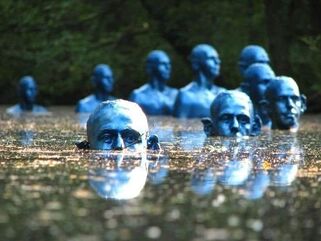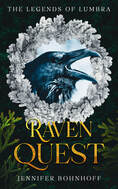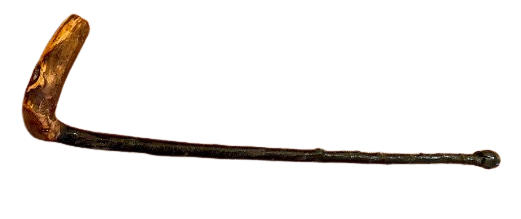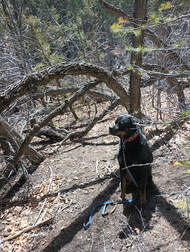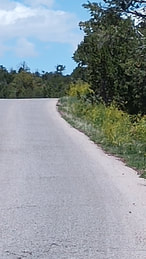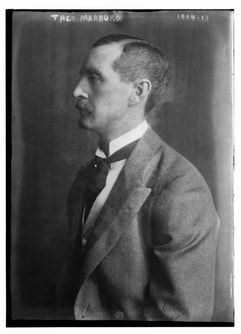 the United States Library of Congress Prints and Photographs division. digital ID 04642
the United States Library of Congress Prints and Photographs division. digital ID 04642Recently, one of my fans let me know that there was a poem about Alexander McRrae, the Union officer who lost his battery of artillery pieces to the Confederates at the Battle of Valverde. Given that tidbit of information, I went down a rabbit hole and discovered not only a poem, but a couple of interesting people.
The poet, it turns out, is a man named Theodore Marburg. Marburg wrote a number of books. Some are poetry. Others are treatises on economics, government, the Spanish American War, and The League of Nations. He was also the United States Minister to Belgium from 1912 to 1914, the executive secretary of an organization called the League to Enforce Peace, and a prominent advocate of the League of Nations
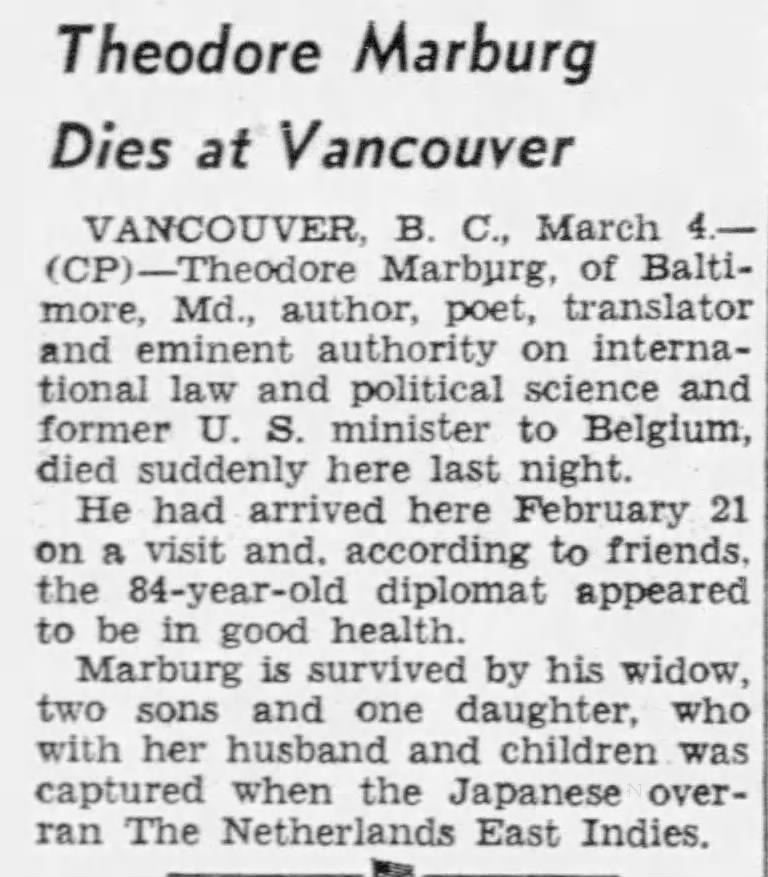
Marburg was born in Baltimore, Maryland on July 10, 1862, which means that McRae was already dead when the poet was born. I found that interesting, and wondered what caused him to want to write a poem about someone he never knew. He died in Vancouver on March 3, 1946.
The poem about Captain McRae, entitled DIVIDED DUTY, comes from In The Hills: Poems, a small volume that was privately printed in Paris 1893, then revised and reprinted by The Knickerocker Press, a division of G.P. Putnam’s Sons, in 1924.
The poem has a footnote, which says
When the American civil war began there happened to be in the regular service a young officer whose home, with all that the word implies, was the South. There were many such. His story is but a type. Is it difficult to picture the struggle that came to them with the sense of a divided duty? This one, with the clearer vision which events have justified, felt that the higher duty was the preservation of the nation; but the thought of fighting against his kindred and the friends of his boyhood so preyed on his mind that he is believed to have courted the death which soon came to him. When the element of fate enters, hurrying the just and the brave to a tragic end, the story must always excite our interest and sympathy. At the battle of Val Verde in New Mexico, February 21, 1862, our hero met his death. The battery, of which, although a cavalry officer, he had been given command for the day, was overwhelmed by the Texans. He remained seated on one of the guns, defending himself until the enemy shot him down. They did him the honor to give his name to one of our forts and to take him back to West Point, to the quiet cemetery in the hills.
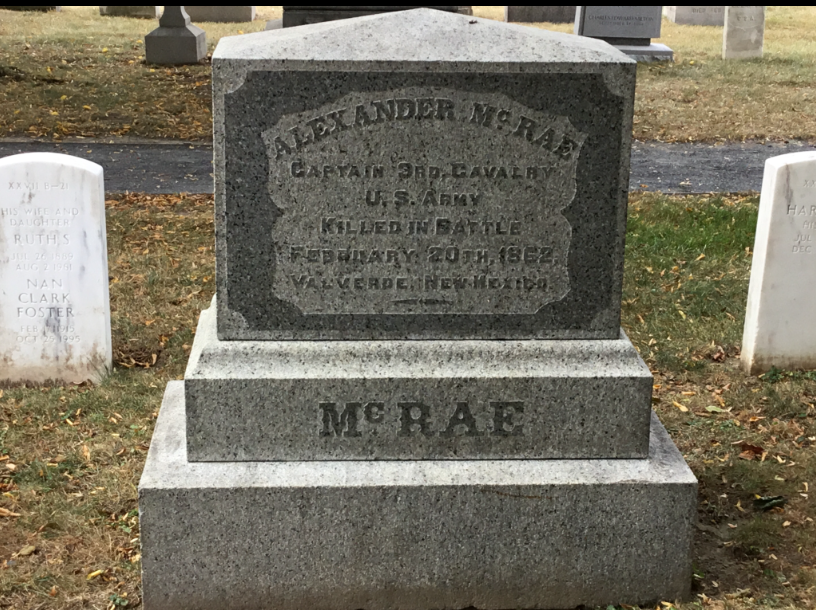
McRae's tombstone. It is just four stones down from that of George Armstrong Custer
The poem is almost as much about the beautiful setting of the West Point Cemetery as it is about the man buried there. It made me wonder if the tombstone inspired the poet to research the man buried beneath it.
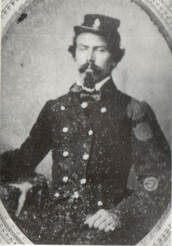
McRae, a native North Carolinian, commanded Company I, 3rd United States Regular Cavalry. His commanding officer, Colonel Edward R.S. Canby, had given him an artillery battery of six pieces. During the Battle of Valverde, February 21, 1862, McRae's battery performed with great success until about 750 Confederate Texans led by Colonel Thomas Green charged the Union guns. Screaming the Rebel yell, the three waves of confederates were poorly armed with short-range shotguns, pistols, muskets, and bowie knives. Green had instructed his men to drop to the ground whenever they saw flashes from the artiller's muzzles. The Union men thought they were inflicting great casualties on the Rebels, but the fact that they just kept coming spooked the New Mexico Volunteers supporting McRae and his officers. Many fled the battery and ran panic-stricken across the Rio Grande, unnerving the Volunteer troops who were then being held in reserve.
The Texans fell upon the battery and fierce hand-to-hand fighting swirled around the artillery pieces. Samuel Lockridge, a Texan officer leading the charge is reported to have shouted, "Surrender McRae, we don't want to kill you!" to which the North Carolinian replied, "I shall never forsake my guns!" Both men then suffered fatal bullet wounds. The loss of the battery caused Colonel Canby to issue orders for a full retreat to Fort Craig. The captured guns, thereafter known as the Valverde Battery, continued to fire against Union troops for the remainder of the war.
After the war, Confederate Gen. Henry Sibley, who led the Confederate forces into New Mexico, wrote a letter to Alexander McRae’s father. In it, he said "The universal voice of this Army attests to the gallantry of your son. He fell valiantly defending the battery he commanded. There are few fallen soldiers that are admired by both armies of a conflict. Capt. Alexander McRae was one."
DIVIDED DUTY
OH, plateau the eagle's brood has known
What potent dead you hold!
In fear of God, in duty's light,
For country and for human right
On varied fields they fought the fight
And, while you claim their mould,
They live and will live through the year,
Though deaf to drum and fife,
For manly deeds are fertile seeds
That spring again to life.
What peace, what perfect peace broods o'er
The soldiers ' burial - ground
Here in the heart of the silent hills
With Hudson flowing round.
A stately guard, these mighty hills,
Close crowding one another,
Gigantic Storm King locking arms
With Old Cro ' Nest, his brother!
Their summits command to the North a range
Where a sleeping figure lies
Stretched on its back on the mountain tops
Against the changing skies.
There Rip Van Winkle, the children know,
Beheld with exceeding wonder
The queer little men whose ninepin balls
Create the summer thunder.
Down from the Donderberg scurried the winds
That tossed the Dutch sailor of yore.
Down from the highlands the captains came
When trembled and strained a nation's frame,
When all the fair land was aflame,
Aflame with civil war.
Far in the South was the home of one '
Twas there he had spent life's morn-
Where winds are soft and women are kind
And gentleness is born;
Where the grey moss waves from the great live - oak
And the scarlet tanager flutters;
Where the mocking - bird, hid in the bamboo- vine,
Its passionate melody utters.
The boom of the gun upon Sumter that caused
A million hearts to sicken,
That rolled o'er the land and grew as it rolled
While a knell in the mother's breast was tolled
And city and meadow and mountain old
With the spirit of war were stricken,
Brought from the hills of the Hudson one
Whose home was the South, ' tis true,
But o'er him the flag of his fathers waved:
He marched in command of the blue.
Oh, the sad story, the story they tell,
The story of duty and death!
The comfort of heaven, the anguish of hell,
Surging with every breath!
Out from the North, the awakening North,
Came comrades whose step was light.
Ah! that was their home, and a mother's prayer
Went with them into the fight.
Measureless plains of the wide South - west
Ye shook ' neath the tread of men.
Nor winds of the prairie, though mighty they be,
That fashioned your reaches like waves of the sea,
Nor rush of the bison once roaming you free
Have caused you to tremble as when
Through all the long day the sulphureous smoke
Hung heavy over the field
And man from his brother the hand of God
Seemed powerless to shield.
The battle is lost.
What use to stay When his men are slain or fled!
Did anguish too great for the brave to bear
Bring longing to lie with the dead?
His battery silenced, on one of the guns
Alone he sat ' mid the rout,
Unmoved as the cliff that the ocean in anger
Whirls its white surges about
A whirlwind of dust, a whirlwind of men,
A whirlwind of lead therefrom,
A vain pistol shot from the figure alone
And the coveted end had come.
What peace, what perfect peace broods now
O'er the beautiful burial - ground,
Up in the hills, the stately hills,
With the river flowing round.
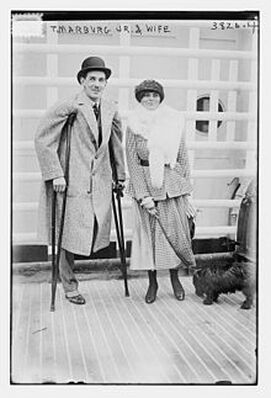 1916: Captain Marburg and his first wife
1916: Captain Marburg and his first wife In researching the poet, I found that Theodore Marburg had an interesting son. Captain Theodore Marburg Jr. was born November 27, 1893 in France and attended Oxford University. When World War I broke out, he joined the Royal Flying Corps, which required him to take the oath of allegiance to the British Government. While on a mission to photograph the German lines in 1915, his plane crashed and a strut pierced his left knee, requiring the leg to be amputated. Marburg wanted to return to the US to get an American-made artificial leg, but the U.S. government refused to issue him a passport since, according to their interpretation of law, he had broken his allegiance to the United States by taking the oath in Britain. His widely publicized case led President Wilson to a bill in October 1917 that restored US citizenship to US citizens who enlisted in Canadian, British, and French services before the US declaration of war if they took an oath of allegiance at a US consulate. Marburg then came back to the U.S. and was treated at the Johns Hopkins Hospital.
Marburg’s life did not go well after the war. Believing an outdoor life would be good for his health, Marburg moved to Arizona, where he purchased a cattle ranch. His first wife, Baroness Gesell de Vavario of Belgium, did not like ranch life and divorced him. He had only been married a month when he shot himself in the head on February 17, 1922. He was buried in Druid Ridge Cemetery in Pikesville, Maryland. It would be interesting to learn more about Marburg Jr. and his struggles.
Jennifer Bohnhoff is the author of a number of historical novels for middle grade and adult readers. Where Duty Calls, the first in the trilogy Rebels Along the Rio Grande, includes the scene where McRae's battery is charged by the Confederates. A Blaze of Poppies tells the story of a young, female rancher from New Mexico who serves as a nurse in World War I and comes back to marry a wounded American soldier. 